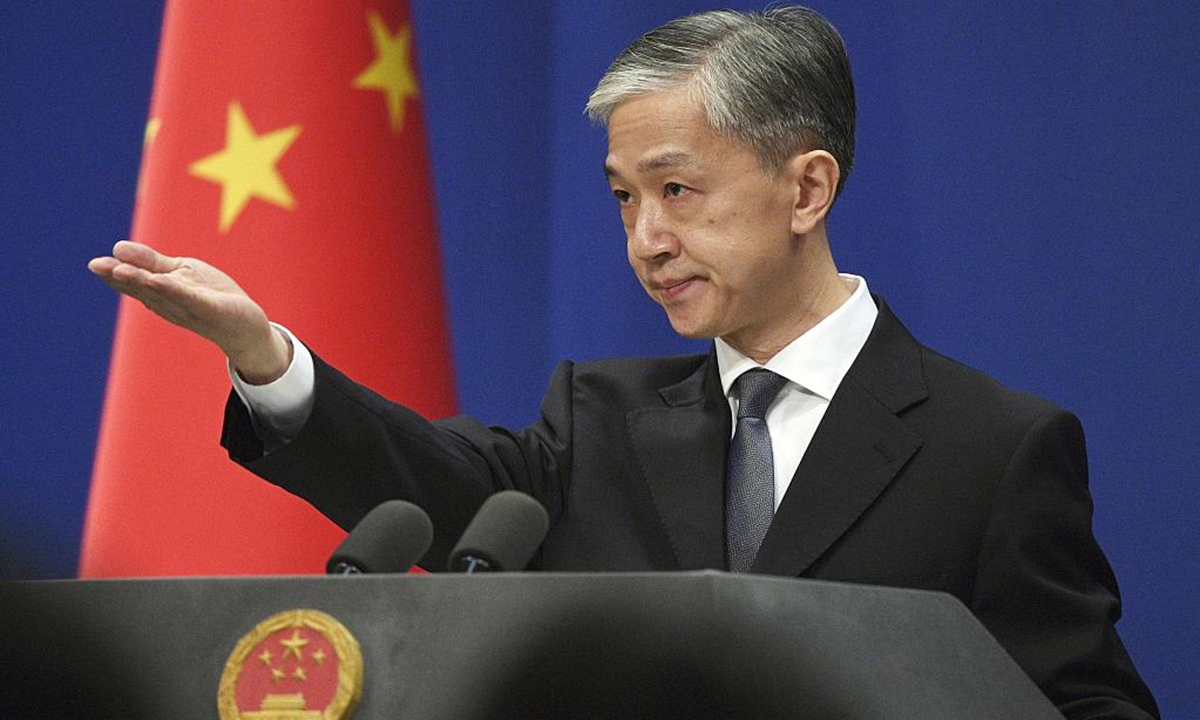China stresses transparency of security pact with Solomon Islands, questions US’ motive in South Pacific

Wang Wenbin, spokesperson of Chinese Foreign Ministry. Photo: CFP
China and the Solomon Islands will act according to customary international practice on the basis of consultation, Chinese Foreign Ministry said on Wednesday, after both China and the Solomon Islands have announced the signing of a bilateral security deal.
On Wednesday, Prime Minister Manasseh Sogavare of the Solomon Islands confirmed the pact had been signed by foreign ministers from the two countries.
The Solomon Islands' decision to sign a security pact with China will not hurt or undermine peace and harmony in the region, the prime minister stressed.
Regardless of the fact that the pact was mutually beneficial cooperation between two independent sovereign states, the White House, which is sending a high-level US delegation to the Pacific island nation this week, said it was concerned about "the lack of transparency and unspecified nature" of the pact.
Australian Foreign Minister Marise Payne said, "We are concerned about the lack of transparency with which this agreement has been developed, noting its potential to undermine stability in our region."
In response to such groundless accusations, Wang Wenbin, spokesperson of the Chinese Foreign Ministry said that China and Solomon Islands conduct security cooperation on the basis of equality, mutual benefit, openness and transparency, to help Solomon Islands maintain social order, tackle natural disasters and carry out humanitarian aid.
"The cooperation is not targeted at any third party and does not replace existing bilateral and multilateral mechanisms of security cooperation. I don't understand how our cooperation poses 'serious risks' to the US," Wang said.
If the US line of argument is followed, does that mean the Pacific Island countries can only carry out security cooperation with the US and its few allies? Does that mean cooperation with other countries are deemed threats? Does the US see the Pacific Island countries as sovereign states or its dependencies? Is the US seeking to develop equal-footed relations with the Pacific island countries or control them? All these are questions for the US to answer, Wang pointed out.
International cooperation should be win-win cooperation. However, the US and Australia try to exclude China from the South Pacific region and regard this region as their own backyard, which is repugnant to the local government and people, Chen Hong, director of the Australian Studies Center at East China Normal University, told the Global Times on Wednesday.
In today's world, no country should override another, impose its will on others, or ask others to do or not do anything. Such bullying practices are doomed to fail, Chen said.
As the Australian Labor Party called the handling of the issue by the current administration "the greatest Australian foreign policy blunder in the Pacific since World War II," Chen said this remark would be more regarded as election language during the national election campaign, while pointing out that it is Australia's move of serving US hegemony that is the country's "greatest foreign policy blunder in the Pacific."
After a flurry of visits by Australian officials that failed to thwart the security pact, White House Indo-Pacific coordinator Kurt Campbell met on Wednesday in Suva with Fiji's Prime Minister Frank Bainimarama to discuss regional security, and will also travel to Papua New Guinea and the Solomon Islands, Reuters reported.
The rare, high-level visit is trying to not only nullify the security pact, but also gather an anti-China small group, which is ridiculous, Chen believes.
The expert predicted that in the future, the US is likely to increase its investment in military cooperation and civilian exchanges in Pacific island nations, and may make more commitments to them than in the past. But considering its goal is to serve its own hegemony and try to suppress China, it is impossible to get recognition from local people and governments, Chen noted.


